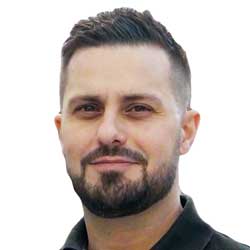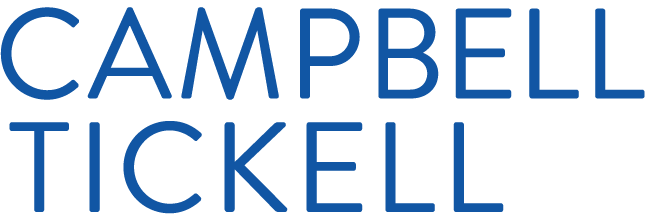The AI tradesperson
How one company is using AI to triage plumbing and heating jobs to ensure its operatives only go where they are really needed
If the fear over AI among some of the wider population is that these shiny new tools will take our jobs and leave human beings redundant, then Ettan Bazil is probably a reassuring voice.
“I think everyone’s somewhat scared of AI at the moment,” he agrees. “They’re worried that AI will replace human connection and they don’t want that to happen, but what’s exciting for me, is using AI to enhance human interaction. It’s about making that contact centre interaction more valuable and impactful.”
Bazil, a trained gas engineer and plumber, founded his Trade Innovations company in 2019. He had the idea of combining AI and machine learning with a network of semi-retired, remote-working tradespeople to create a better way of triaging plumbing, heating and other housing repairs jobs.
Prioritising jobs
Bazil has created a triage and diagnostics product – Help me Fix – which uses an AI assistant (known as Aidenn) to process massive amounts of data to help understand the type of repair work that is needed. Aidenn also helps determine if a call-out is required or whether the work can be resolved remotely via the network of tradespeople or by the customer watching a guidance video.
According to Bazil, Aidenn isn’t replacing the job of a human; it is helping make sure the human engineers and tradespeople are deployed when and where they are genuinely needed.
“This is an example of AI dealing with the separation of the wheat from the chaff,” he explains. “So if it’s something really simple, AI would be able to deal with it and then it can escalate the more complicated stuff up to triage.
“If it’s something that’s going to require professional oversight, such as anything to do with boilers or live electrics, it will connect the resident to a triage engineer or dispatch someone. But if it’s something like a consumer unit reset, then it will respond with a helpful video.”

“AI can escalate the more complicated stuff up to triage.”

Ettan Bazil
Founder and CEO, Help me Fix
“AI is going to change the way we live our lives in general, but in housing, we’re talking about stopping bad things before they happen... because it can detect patterns better than people can.”

Ettan Bazil
Founder and CEO, Help me Fix
“AI is going to change the way we live our lives in general, but in housing, we’re talking about stopping bad things before they happen... because it can detect patterns better than people can.”
Data-led diagnostics
The system can only work because of the mountain of data that is fed into it from a huge variety of sources, which Aidenn then immediately contextualises. Bazil says: “It instantly knows every detail about a property, such as the type, construction materials, insulation details, the heating system, and even, environmental factors, such as the weather, so it can deliver relevant diagnostics quickly.”
“Once it gets the address from the resident, it grabs the UPRN (Unique Property Reference Number) and identifies the latitude and longitude, pulls down the EPC certificate, and then finds out what the weather is like at the property. Once we’ve got all of that information, we’re able to contextualise the repair. So if, let’s say, we’ve got a leak coming through a ceiling, and we know that the property is a bungalow and it’s raining, then the issue is most likely being caused by a leaking roof. So that will be the route that Aidenn takes. Whereas, if the property’s in a block, and it’s in the middle of the block, and there’s beautiful sunshine there, the leak is most probably being caused by a plumbing problem.”
Aidenn also has access to a database of triage calls and call reports, so it can find similar situations where a fix has been provided. But the key for the future, says Bazil, is that the model continues to evolve. He is working to get data from National Grid distribution network operators (DNOs) on gas and electricity interruptions and has invited housing providers to share their own data, as well; all of which will improve the performance of his products.
“I’m a big believer that AI is going to change everything,” says Bazil. “It’s going to change the way we live our lives in general, but in housing, we’re talking about stopping bad things before they happen. I think this is one of the main things AI will be able to do because it can detect patterns better than people can. There are examples where AI can miss things, but it will get there soon.
“I think that the contact centre will be redefined. So rather than have people as a first port of call, you’ll have AI-enabled contact centres and then people as a second stage.”

